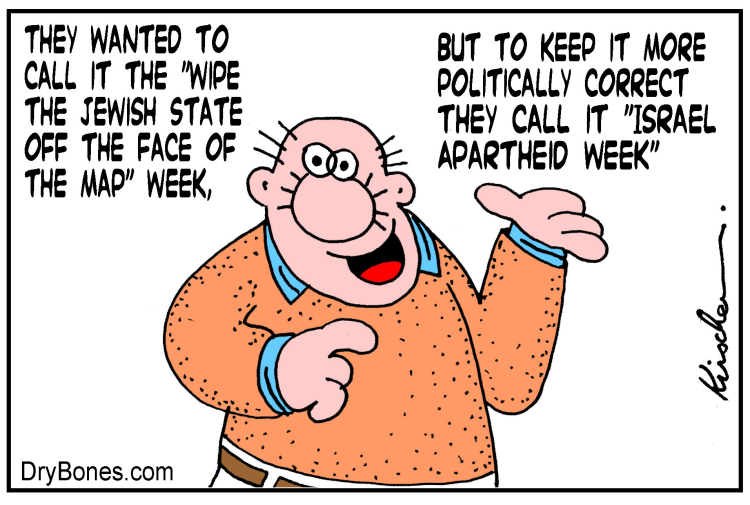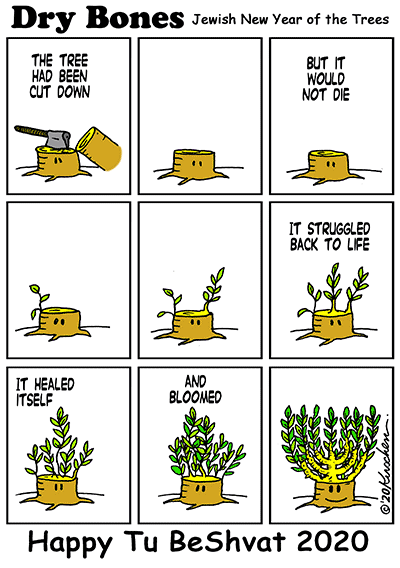Ha'aretz: Requiem to the Israeli Left's Apartheid Argument
In this day and age, with progressives tending to bestow automatic moral rightness on the weak and to assign automatic moral blame to the strong, the left is inclined to be furious at the very suggestion that the occupied are to blame for the continued occupation. Part of this fury is based on denying Palestinian recalcitrance and rejectionism.
But the other part is actually more poignant: Some on the left believe we must end the occupation regardless of the price we’ll have to pay, since it is an evil one cannot acquiesce to. From this perspective, the infringement on Palestinian human rights is so grave that it undermines Israel’s moral foundation – to the point of voiding its very right to exist. If Zionism rests on the universal right to self-determination, the argument goes, it cannot exist at the expense of another people’s ability to exercise that same right.
I don’t know if the historian with whom I dined subscribes to this extreme view, but I think this is what many who see the “apartheid” argument as closing the case believe.
Still, one is obliged to ask if what we are talking about here is an offense so abhorrent, so inhumanly odious, that one must die rather than commit it. Should we really end the occupation even if it means collective suicide for Zionism and probable death to most of its sons and daughters (or at least to those who cannot afford to emigrate)?
Undeniably, there are crimes one should die before committing. Genocide would probably be the obvious example. But it is hard to stretch this argument to include the Israeli-Palestinian conflict. It would seem there is not much moral weight to the idea that we should choose our own death only to save the Palestinians from the consequences of their rejectionism and their turn to murderous terrorism. There is also little point in committing suicide only to replace Israel’s military rule with a more brutal regime that will deprive the Palestinians of human rights to an even greater extent, as Hamas has done in Gaza.
The truth is that, short of attempting to justify collective suicide, the moral argument from “apartheid” has no use. As long as we refuse to die, it will not save us from having to limp along with no full solution in sight to the Israeli-Palestinian quagmire.
We will have to brace ourselves for a long stretch of political awkwardness and moral ambiguity. Which is still far better than jumping together, with our hands at each other’s throats, into the lava around us. The incantation “apartheid” will not make any of those harsh circumstances disappear.
Is ICC being equal with Israeli settlements, Turkish occupation? - analysis
Amid the all-important International Criminal Court debate about whether Israeli settlements are a war crime, almost completely ignored has been the question of Turkey’s occupation of Northern Cyprus.Will anti-Israel case go unanswered at The Hague? Israeli lawyers already have a plan
The Palestinians officially asked for ICC intervention in January 2015, and ICC Prosecutor Fatou Bensouda essentially declared Israeli settlements war crimes on December 20.
In contrast, the first complaint by a Cypriot official, represented by Shurat Hadin, against Turkey’s settlements in Northern Cyprus was filed in July 2014 – half a year earlier than the claims against Israel.
Seven weeks after Bensouda decided against Israel, all that has been said about the Turkish occupation of Cyprus is that a decision is anticipated at some undefined point later in 2020.
How did the Turkish case fall to the back burner as compared to the case against Israel?
Does this unequal situation prove anti-Israel bias by the ICC, as some claim?
The Israel Bar Association will try to represent Israel in the International Criminal Court at The Hague to push against the charges laid by the Palestinians, Israel Hayom has exclusively learned.
The IBA's move is designed to give Israel a voice in the court without having the country officially join.
Israel has refused to sign the Rome Statute and is hence not part of the ICC. The Jewish state also says the court has no jurisdiction on matters pertaining to Israeli territory because Israel is not a party to the convention, but the court has nevertheless begun proceedings that could culminate with a full-fledged investigation against Israel over its actions in the Gaza Strip and in various Palestinian cities.
Israeli leaders have slammed the court for taking that position.
The IBA's governing body approved Monday a motion that could pave the way for the organization to represent Israel in cases concerning the state. "In order to avoid having the Palestinian Authority's position go unchallenged, we have discussed the possibility of becoming an amicus curiae in the court and we have assembled a task force to facilitate that," the motion reads.










































.jpeg)

.jpg)

